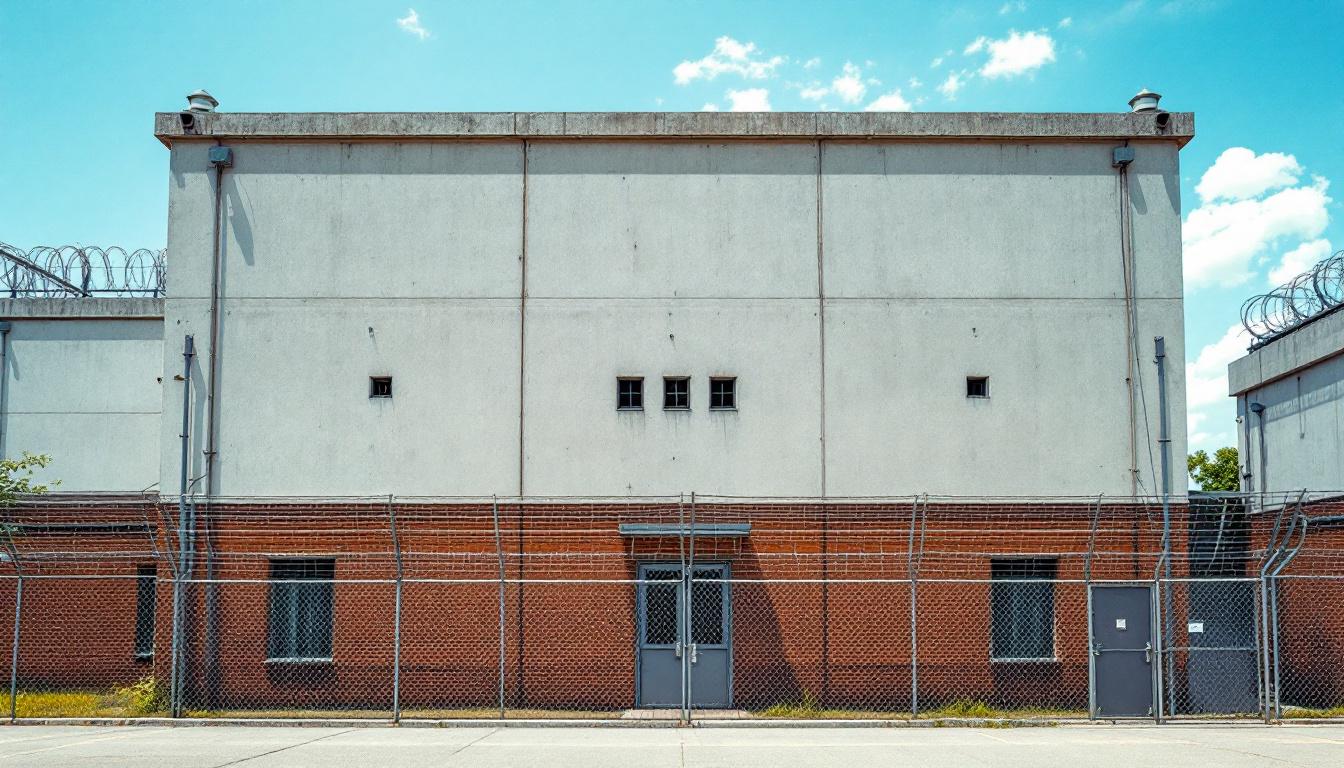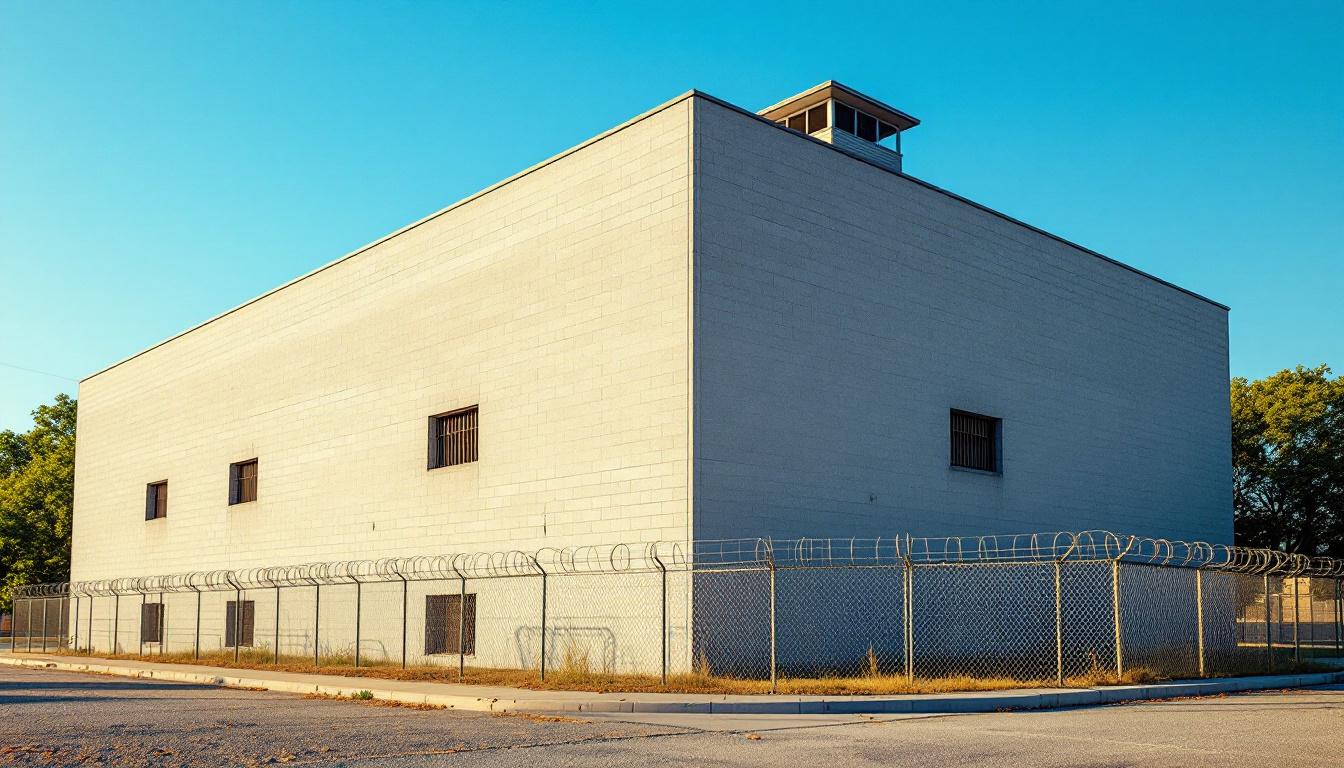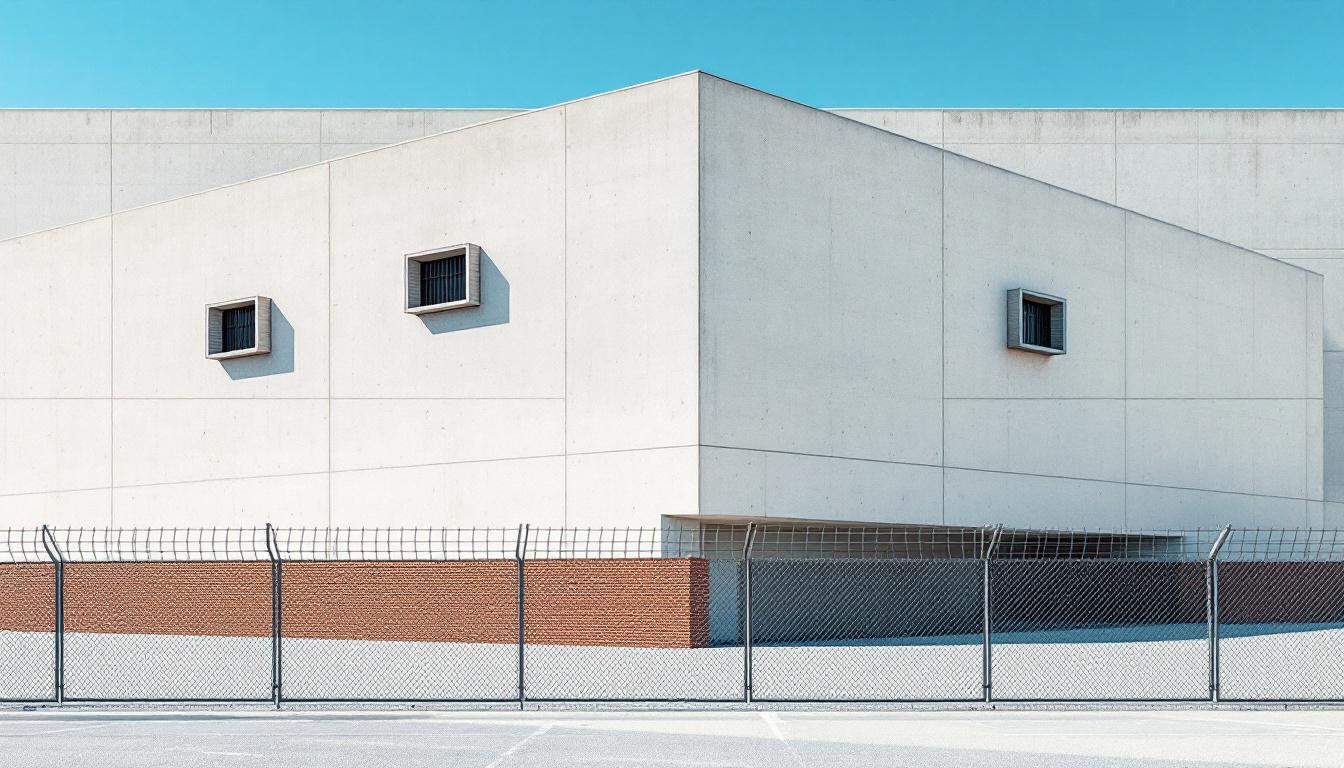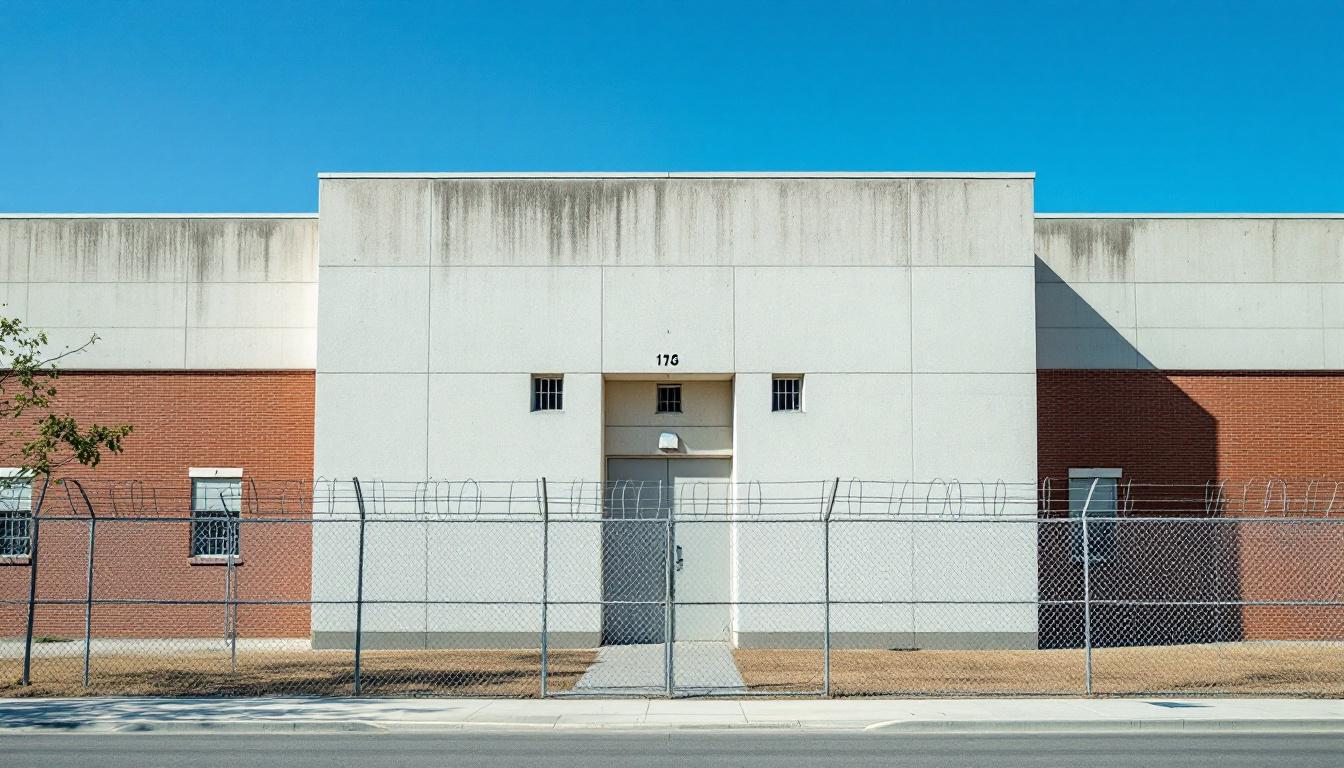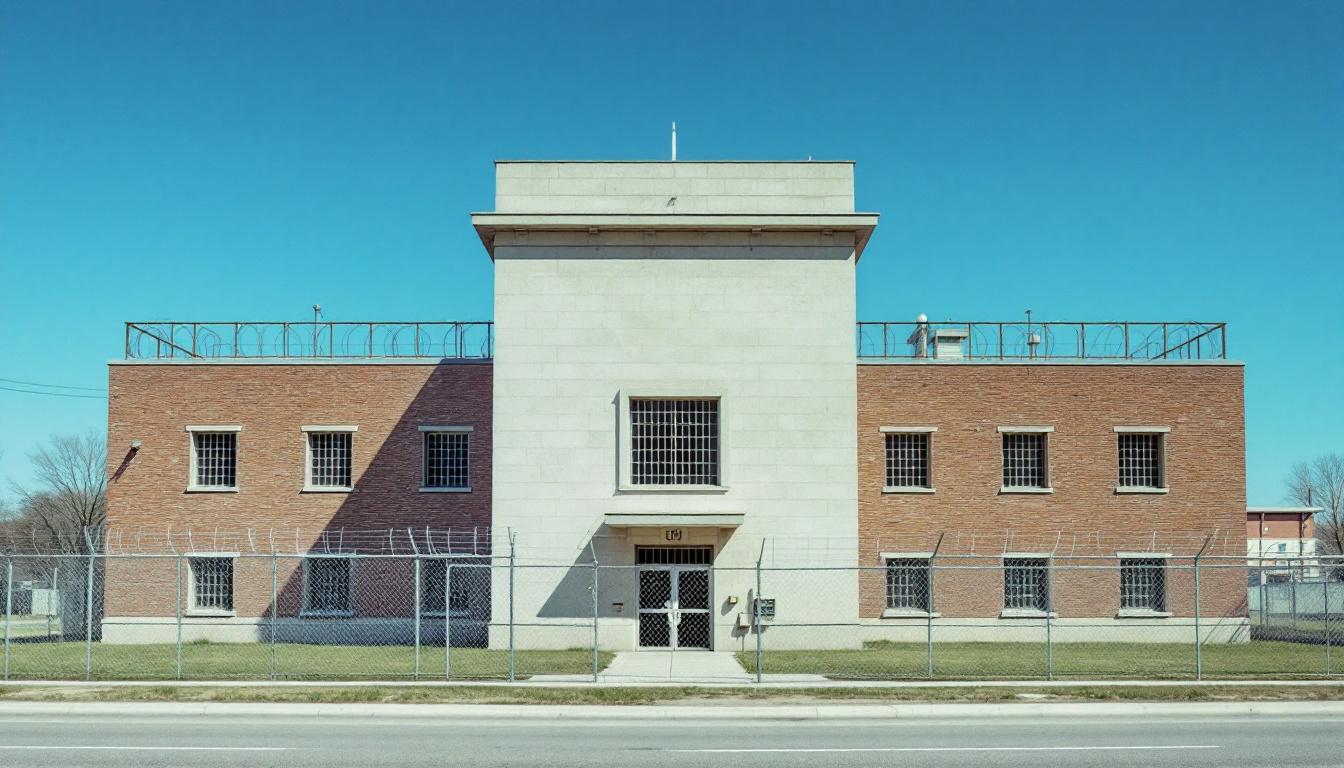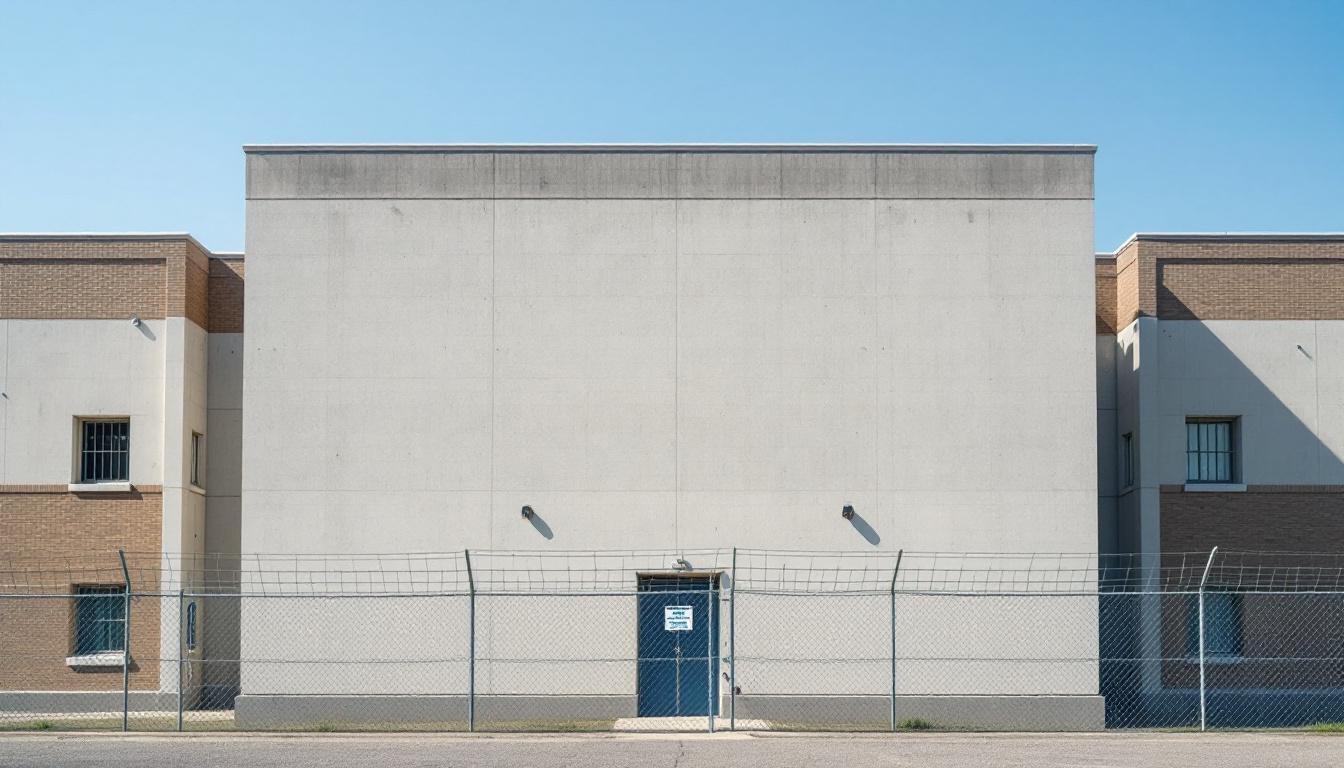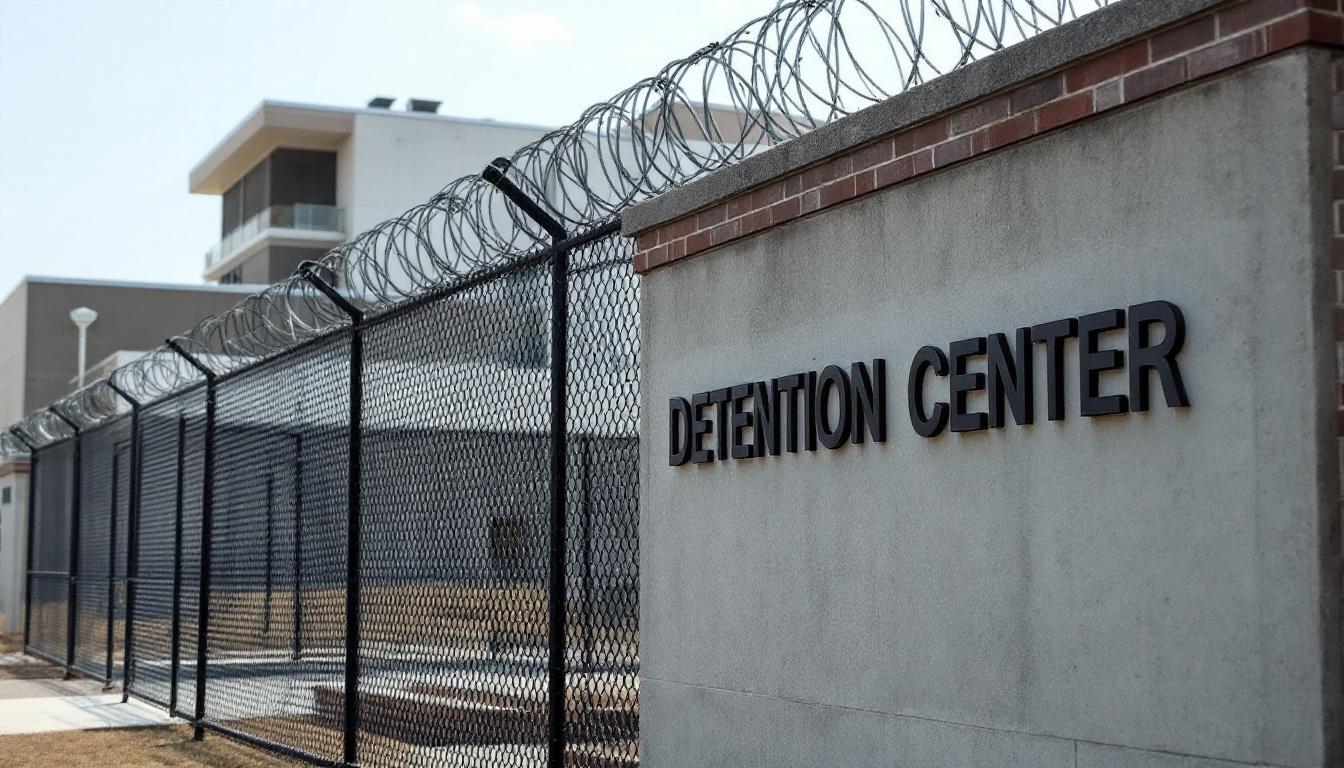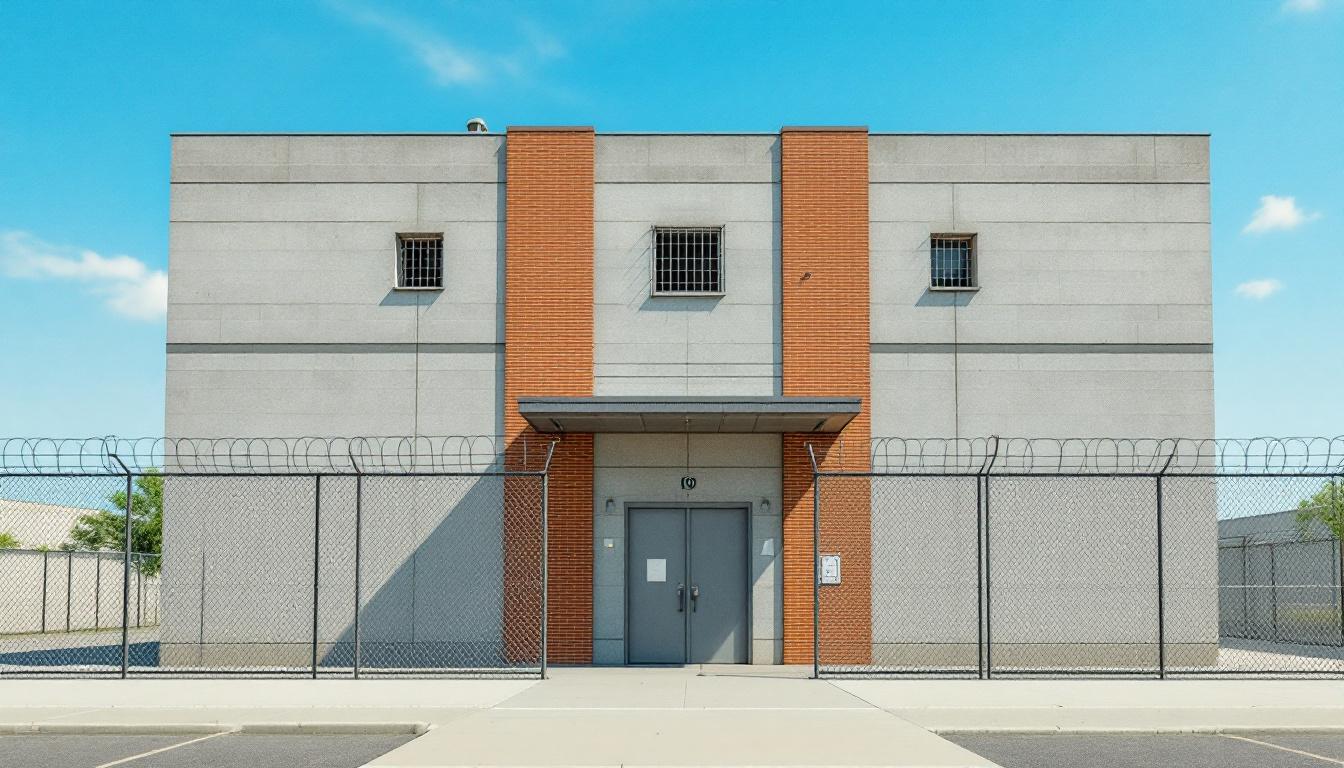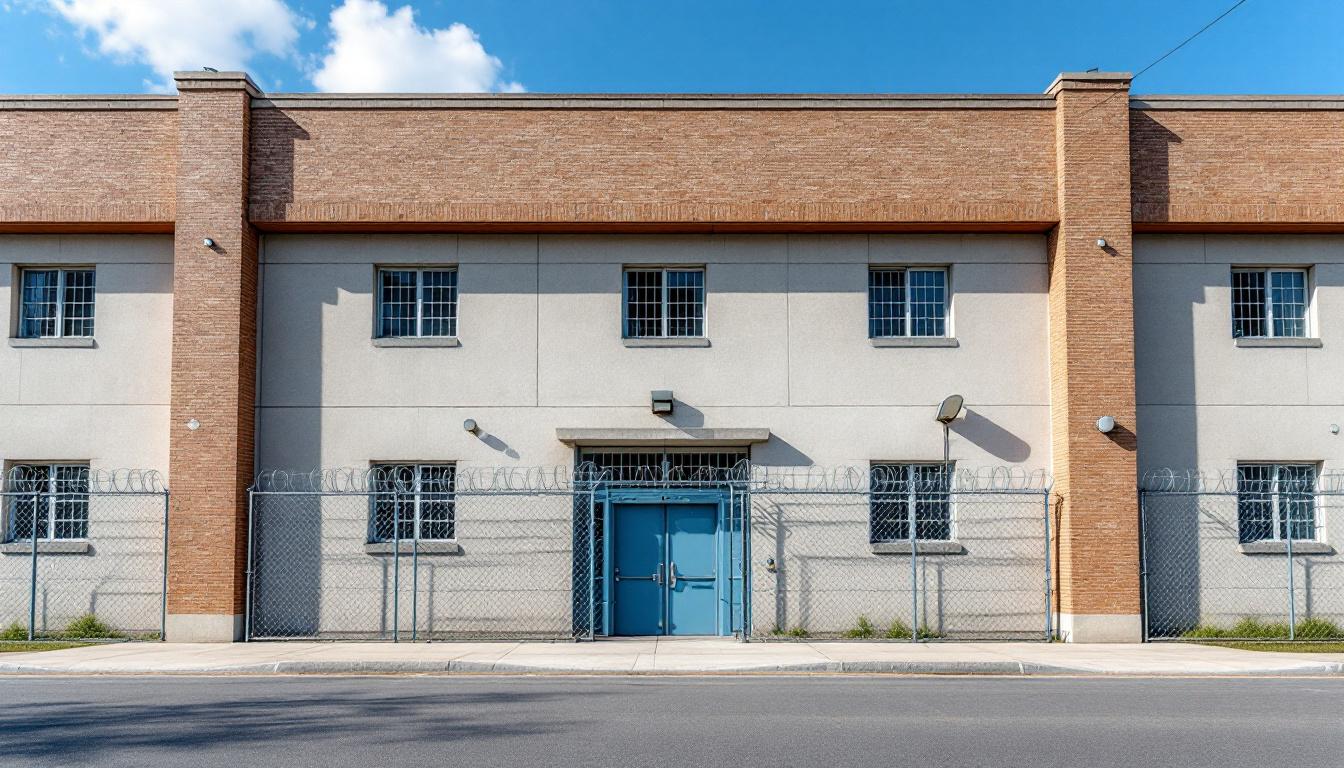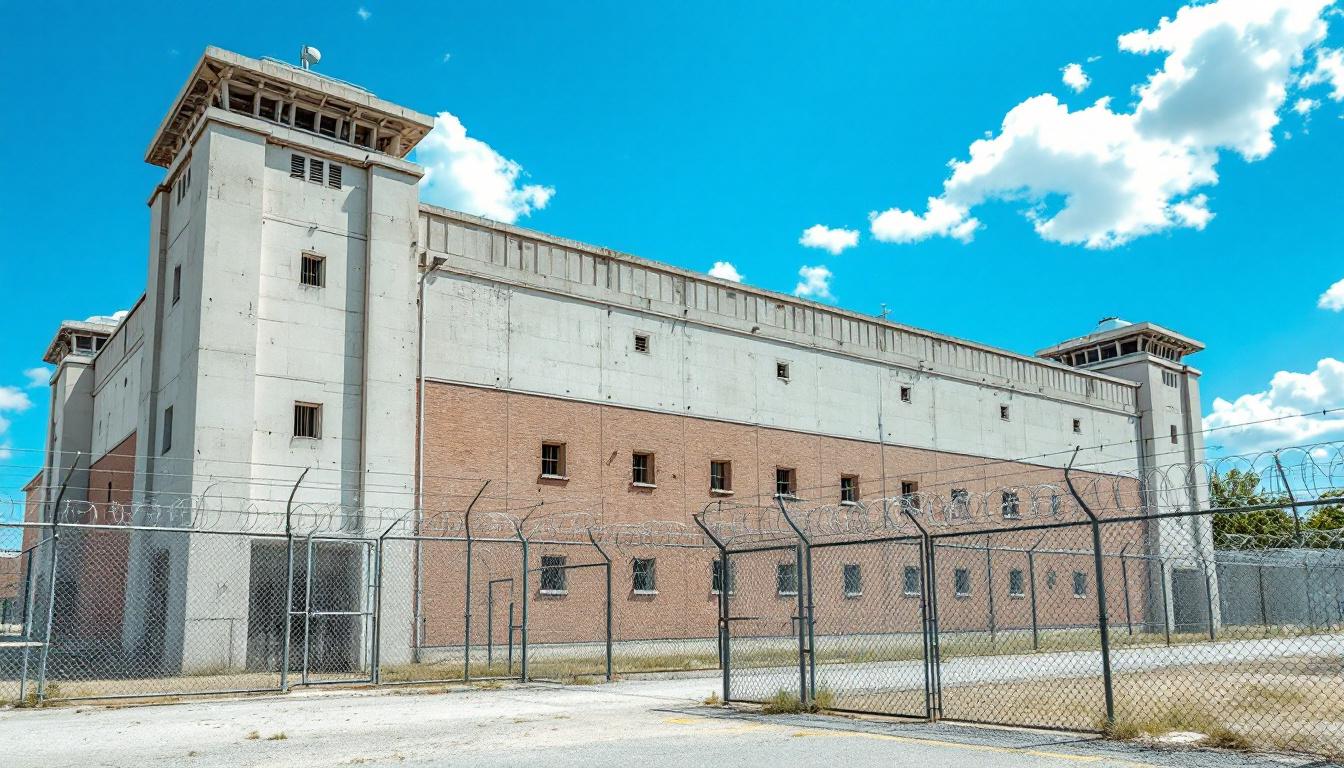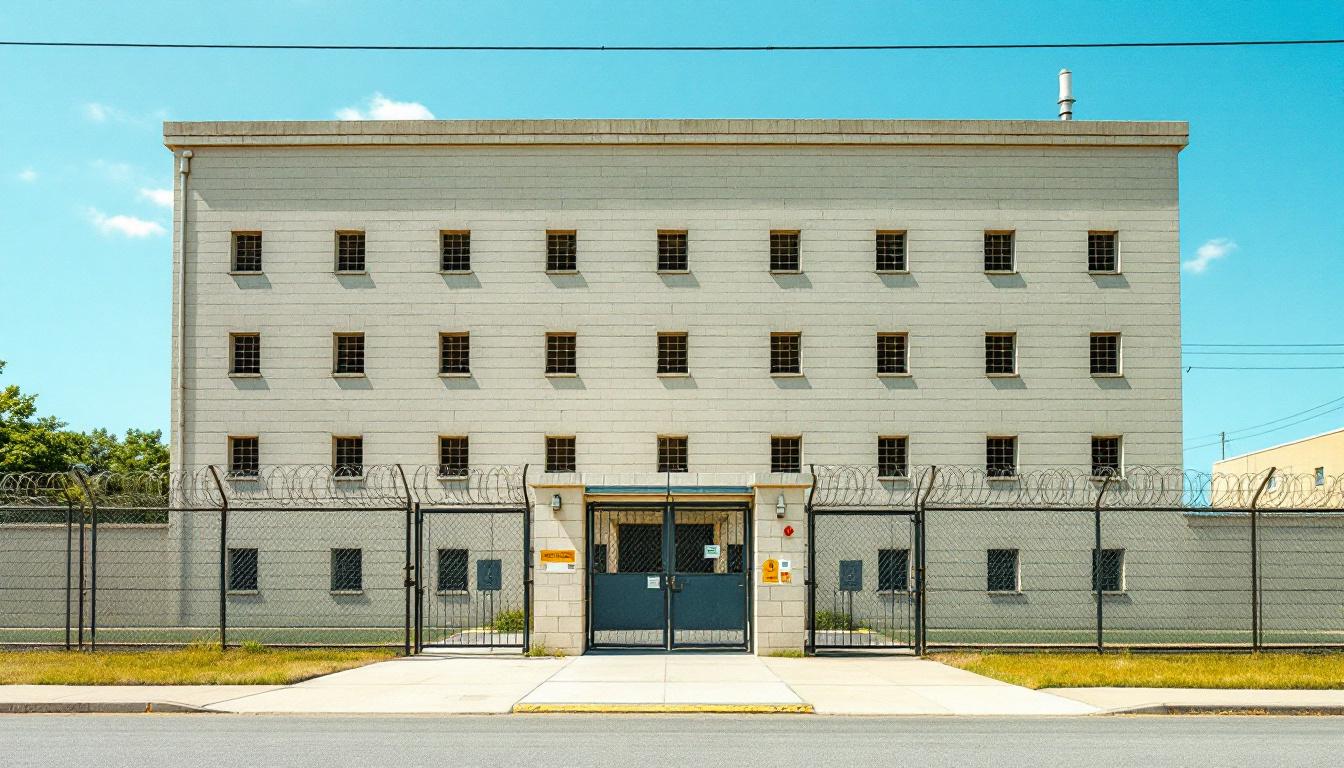
Quick Navigation
How to contact an inmate at Transylvania County Jail
This comprehensive guide will walk you through how to connect with an inmate at Transylvania County Jail. Follow the steps below to find an inmate and send letters and photos:
- Search for the inmate using our search tool below
- Create your account or log in to Penmate
- Write your message (up to 6,000 characters)
- Send instantly - inmates receive printed copies daily
Find an Inmate
Search for an inmate to start communicating today
Tip: You can search by first name, last name, or inmate ID number
To contact a person at Transylvania County Jail start by searching for the person on the official facility website. Perform a search by following these steps:
- Step 1: Enter their first name and last name into the search form and click "Search"
- Step 2: Locate their inmate record
- Step 3: Write down their Inmate ID and any housing information provided
Important! Be sure to enter the person's full name. Nicknames should not be used.
How to Send Messages to Inmates

You can use your phone or computer to send emails, letters, and photos to an inmate. Messages are sent electronically to inmate tablets or kiosks at the facility. If you would like to send a message, start by searching for an inmate at Transylvania County Jail.
Sending Photos and Postcards

A great way to send love and support to a loved one at Transylvania County Jail is to send photos and postcards. It only takes a few minutes to send photos from your phone and it makes a huge difference. You can also mail postcards with words of support and inspiration, or design your own postcard for special moments like birthdays and holidays.
Important! Be sure not to send any explicit photos or they may not be approved by the facility. You can also use a photo printing app like Penmate to make sure your photos are printed at the correct size (4x6 or 3x5) and are mailed according to the rules and regulations of Transylvania County Jail.
Frequently asked questions about Transylvania County Jail
-
How long does it take to deliver a message?
If you're sending an email message your letter is usually delivered within 24-48 hours. For messages sent via mail you should expect delivery within 3-7 days. All messages will need be approved by Transylvania County Jail.
-
How much does it cost to send a message to Transylvania County Jail?
You can send a message free using your phone or mail a message via USPS for the price of a $0.60 stamp and envelope. You can also purchase credits or e-stamps from services starting at $1.99.
-
What services can I use to contact an inmate at Transylvania County Jail?
Penmate
You can use Penmate to send letters and photos to an inmate from your phone. It's an easy way to stay in touch during your loved one's incarceration. Use the inmate locator to find an inmate's location and contact information, then you can send messages within a few minutes.
Securus messaging
Securus may be another option for communicating with an inmate at Transylvania County Jail. You can create a friends and family account and purchase credits to send messages. All messages will be reviewed and must be approved by the facility.
JPay
Some county jails and state prisons may support sending messages with JPay. You must register an account with the system, find your loved one, and purchase stamps to send messages. For some locations you can also attach photos.
Smart Jail Mail
You may also check if Smart Jail Mail is available at Transylvania County Jail. Smart Jail Mail is operated by Smart Communications and has contracted with some state and county jails. After purchasing credits, your messages and photos are sent to the facility, printed out, and then handed out to your loved one.
-
What is the mailing address of Transylvania County Jail?
Mailing address:
Transylvania County Jail
153 Public Safety Way
Brevard, NC 28712
Phone: (828) 884-3147Business hours:
- Monday: Open 24 hours
- Tuesday: Open 24 hours
- Wednesday: Open 24 hours
- Thursday: Open 24 hours
- Friday: Open 24 hours
- Saturday: Open 24 hours
- Sunday: Open 24 hours
-
What are the visiting hours at Transylvania County Jail?
Visiting hours at Transylvania County Jail vary by housing unit and security level. Generally, visits are scheduled on weekends and holidays, with some facilities offering weekday visits. Contact the facility directly at (828) 884-3147 or check their website for the current visiting schedule. Visits typically last 30-60 minutes and must be scheduled in advance.
-
What items are prohibited when sending mail to Transylvania County Jail?
Prohibited items typically include: cash, personal checks, stamps, stickers, glitter, glue, tape, staples, paperclips, polaroid photos, musical or blank greeting cards, hardcover books, magazines with staples, and any items containing metal or electronics. Only send letters on plain white paper with blue or black ink. Photos must be printed on regular photo paper (no Polaroids). Always check with Transylvania County Jail for their specific mail policies.
-
How do I send money to an inmate at Transylvania County Jail?
You can send money to an inmate at Transylvania County Jail through several methods: 1) Online using JPay, Access Corrections, or the facility's approved vendor, 2) Money orders mailed directly to the facility with the inmate's name and ID number, 3) Kiosks located in the facility lobby, or 4) Over the phone using a credit or debit card. Fees vary by method, typically ranging from $2.95 to $11.95 per transaction.
-
Can I schedule a video visit with an inmate at Transylvania County Jail?
Many facilities now offer video visitation as an alternative to in-person visits. At Transylvania County Jail, video visits may be available through services like Penmate, Securus Video Connect, GTL, or ICSolutions. Video visits typically cost $10-20 for 20-30 minutes and must be scheduled in advance. You'll need a computer or smartphone with a camera and reliable internet connection. Contact the facility for their specific video visitation policies and approved vendors.
-
What identification do I need to visit an inmate at Transylvania County Jail?
All visitors must present valid government-issued photo identification such as a driver's license, state ID, passport, or military ID. Minors must be accompanied by a parent or legal guardian who can provide the minor's birth certificate. Some facilities require visitors to be on the inmate's approved visitation list, which may require a background check. Contact Transylvania County Jail for specific ID requirements and visitor approval procedures.
-
How can I find out an inmate's release date?
To find an inmate's release date at Transylvania County Jail, you can: 1) Use the online inmate search tool if available, 2) Call the facility's records department, 3) Contact the inmate's case manager or counselor, or 4) Have the inmate provide this information during a call or visit. For privacy reasons, some facilities only release this information to immediate family members.
Facility Overview
Contact Information
Transylvania County Jail153 Public Safety Way
Brevard, NC 28712
Phone: (828) 884-3147
Official Website

About Transylvania County Jail
Serving the correctional needs of residents throughout western North Carolina’s mountain region, the primary mission centers on maintaining secure custody while supporting rehabilitation efforts for individuals within the local justice system. Located in Brevard, this NC correctional facility operates as an integral component of Transylvania County’s law enforcement infrastructure, typically housing pre-trial detainees and those serving shorter sentences within the community. The facility’s geographic position in the Blue Ridge Mountains region often necessitates coordination with surrounding counties and state-level resources to ensure comprehensive services for those incarcerated services and their families.
Community partnerships generally form the backbone of programming efforts, with local organizations often collaborating to provide educational opportunities, substance abuse counseling, and workforce development initiatives. The facility typically maintains connections with regional healthcare providers, mental health services, and faith-based organizations that may offer support during incarceration and transition planning. These collaborative relationships frequently extend to family support services, helping maintain important connections between individuals in custody and their loved ones throughout the surrounding mountain communities. Transportation and communication services often accommodate the rural nature of the region, recognizing that families may travel considerable distances for visitation and court proceedings.
Security protocols generally align with standard county jail operations while adapting to the comprehensive geographic and demographic characteristics of the area. Staff members typically work closely with local courts, probation services, and community supervision programs to facilitate smooth transitions and reduce recidivism. The facility’s role within North Carolina’s broader correctional system often involves coordination with state facilities for transfers and specialized programming that may not be available locally, ensuring individuals receive appropriate services regardless of their specific needs or sentence length.
Programs & Services
Within the structured environment of Transylvania County Jail, those incarcerated encounter a comprehensive framework of developmental offerings designed to foster personal advancement and prepare individuals for successful community reintegration. The facility’s approach emphasizes the transformative potential that emerges when security, safety, and structured programming converge to create meaningful opportunities for growth. Through carefully coordinated initiatives, participants may engage in experiences that build essential skills while addressing underlying challenges that often contribute to criminal behavior.
Educational services typically form the cornerstone of personal development, providing those incarcerated with opportunities to pursue literacy advancement, obtain equivalency credentials, or develop foundational academic skills that may have been previously lacking. Moreover, vocational training offerings often include practical skill development that directly translates to employment opportunities upon release, equipping participants with marketable competencies that enhance their prospects for economic stability. These structured learning environments may furnish both theoretical knowledge and hands-on experience, creating pathways toward sustainable career development.
The facility’s therapeutic offerings frequently encompass comprehensive substance abuse programs that address addiction through evidence-based approaches, recognizing the critical role that recovery plays in reducing recidivism. Additionally, support services may include specialized training in forklift operation, providing valuable certification opportunities, while laundry services operations offer practical work experience that develops both technical skills and workplace discipline. Religious services typically complement these offerings by providing spiritual guidance and community support, creating a holistic approach to rehabilitation that addresses the multifaceted needs of those working toward positive life changes.
Daily Life & Visitation
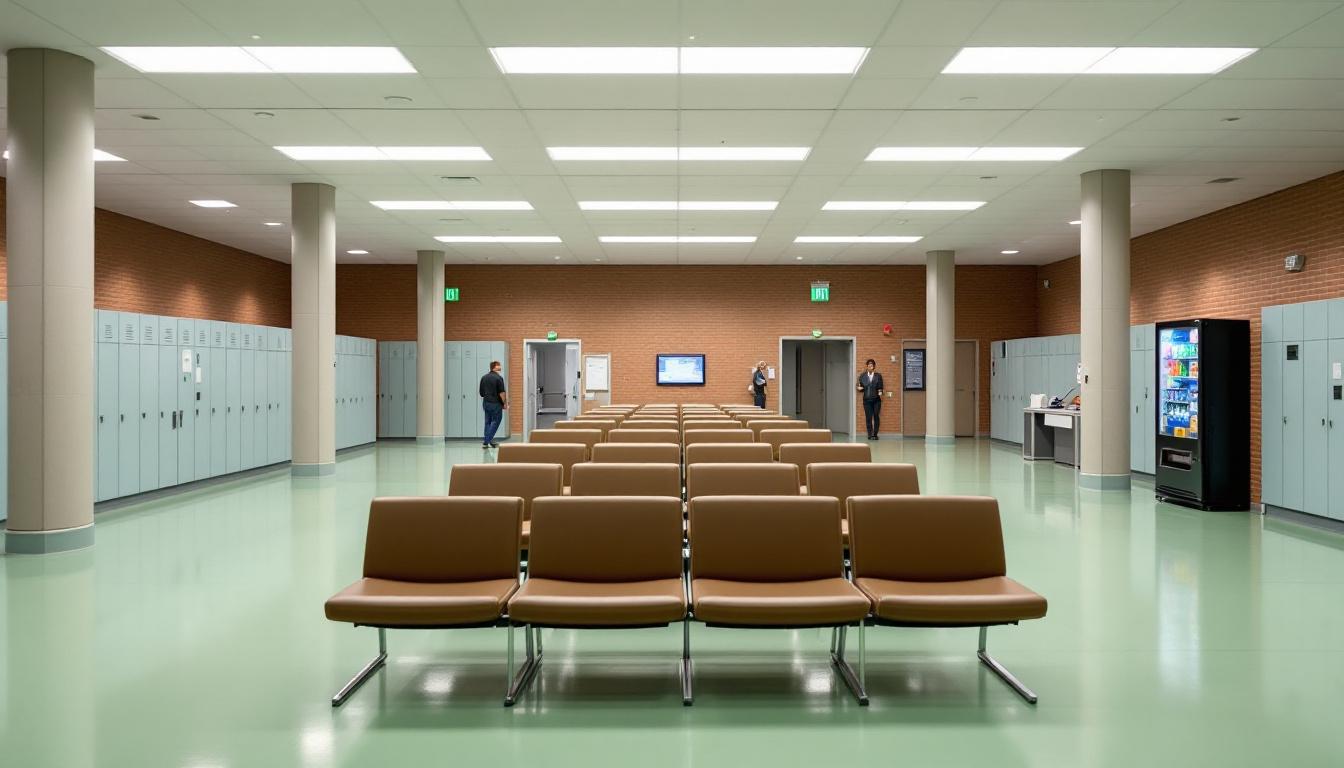
Family connections and social bonds remain central to the experience of those incarcerated at Transylvania County Jail, where maintaining relationships with loved ones helps create a sense of community within the facility’s structured environment. Those housed here now navigate daily routines that typically begin with early morning counts and meal service, followed by regularly scheduled activities that may include educational programming, work assignments, and recreational periods. The facility generally operates on a consistent schedule that furnishes predictability, with those incarcerated moving between housing units, common areas, and program spaces throughout the day under appropriate supervision.
Living accommodations at the facility typically consist of shared cells or dormitory-style housing units, where those incarcerated often develop supportive relationships with their cellmates and fellow residents. Meals are usually served in designated dining areas at scheduled times, providing opportunities for social interaction and community building among residents. Moreover, the facility may offer recreational activities such as television viewing, reading materials from the library, and outdoor exercise periods when weather and security considerations permit, allowing those incarcerated to maintain physical wellness and engage in constructive social activities.
Structured programming schedules generally include opportunities for those incarcerated to participate in work assignments within the facility, which may involve kitchen duties, cleaning responsibilities, or maintenance tasks that contribute to the daily operations while providing purpose and routine. Visitation policies typically allow family members and approved visitors to maintain regular contact through scheduled in-person visits, while communication options such as telephone calls and correspondence help preserve vital connections to the outside community. Whereas the facility environment necessarily includes security measures and restrictions, commissary services usually enable those incarcerated to purchase personal items and snacks, and access to legal resources and religious services helps address spiritual and legal needs during their time at the facility.
Ready to Connect?
Start communicating with your loved one today
Search for an Inmate
